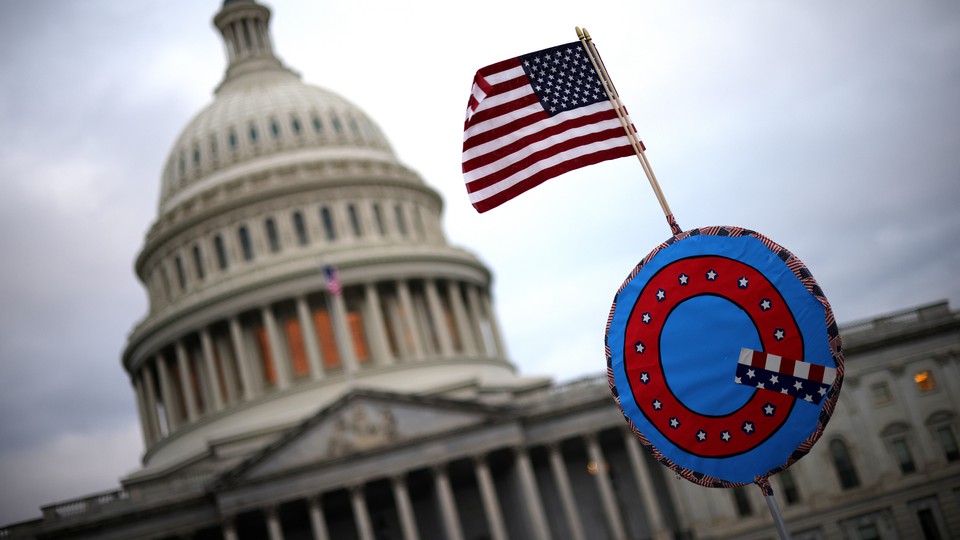
“I fear all we have done is to awaken a sleeping giant and fill him with a terrible resolve.”
–Japanese Admiral Isoroku Yamamoto (After the attack on Pearl Harbour)
Presidential and congressional candidates have not always been successful during the various election cycles. But since the founding of this nation, until today, the United States Constitution, as an overarching principle, has always managed to be victorious at the polls, regardless. And, unlike aspiring public officials, during their political campaigns, who had promised but who had failed to unify a divided nation, only the United States Constitution, again, and its devoted children were able “to deliver the goods”.
Whenever threats had arisen – small ones or great ones – towards the dissolution of the American republic, it managed to inspire and to guide the most unlikely of individuals into shedding their narrow, parochial and partisan agendas and to join the ranks of those who remained passionate and unwavering in their commitment to it for the broader national good. One such notable example from history was Mr. Abraham Lincoln, the 16th president of the United States.
The time was the American Civil War, which began on April 12, 1861. The outcome of the national election the year before, in 1860, had given Mr. Lincoln a victory in both the popular and the electoral vote, with just under 40 per cent of the popular vote and 180 electoral votes. The discontent with respect to his victory at the polls was, for all intents and purposes, immediate. The election of 1860 had proved to be the breaking point for an already unstable nation. By Mr. Lincoln’s inauguration on March 4, 1861, seven states from the Deep South, out of a total of 33 states in the Union, had left the Union on February 4, 1861.
The states that had seceded had convened and created the Confederate States of America under the leadership of Mr. Jefferson Davis. Just under two months later, on April 12, 1861, Confederate forces opened fire on Union-occupied Fort Sumter off the South Carolina coast. This was the beginning of the Civil War. In all, a total of 11 states had seceded. Both the new president, and, more importantly, the Constitution were in an extremely vulnerable position, which leads to the question — one which is germane to presidential elections prior to and after the election of 1860 — “Can it be said that America had, indeed, elected Mr. Lincoln as president, if every citizen in the country had not cast a vote in his favour?”
No president has ever won every, single, solitary vote of the popular vote — (the workings and out-workings of the electoral votes is another story altogether). And so, when it is said that “America voted for such and such an individual as president of the United States” how accurate, or how moral, or how true is such a declaration?
In the 1860 presidential election more than half of the country — that is, a little over 60 per cent of the electorate — did not cast a vote in favour of Mr. Lincoln. What then is the rational or legal basis for such an assertion? The only answer to that question has to be, “The Constitution of the United States of America”.
With the help of “we the people”, through their elected legislators, the document determined who and what mathematical formulas would determine who wins an election, whether it makes sense to us or not. Having designed the playing field upon which such political games were to be played, and also the rules by which they were to be played, it then became the sole and undisputed arbiter over such signal, seminal and august proceedings. And so, the next question is, “What happens to the country when the Constitution is bypassed or when it is, unilaterally, usurped? What happens when the rules are no longer seen to be applicable by all of the parties concerned?
This writer once knew of a married couple with the wife, having accused the husband of infidelity — of summarily and routinely breaking the rules of holy matrimony — who decided not only to leave the matrimonial home but also to engage in an adulterous affair before the union was legally dissolved through divorce proceedings in a court of law. Because the wife believed that the rules were no longer respected by her husband it created within her a retaliatory attitude which emboldened her towards disregarding those very rules herself.
And so, with this in mind, should the incoming Trump Administration make attempts to ignore or to defy the tenets of the United States Constitution, what guarantees are there that the 48.4 per cent of the voters who voted for his main rival, Vice-President Harris, and of those who fell into the much smaller percentages of the electorate who voted for other candidates will sit idly by while attempts are made to corrupt or to destroy it?
What guarantees are there that everyone in the majority who had helped to put President-elect Trump in office will support such illegal activities? Furthermore, what of the, approximately, 89 million registered voters (about 36 per cent) who did not participate in the 2024 election? What of them? Are Americans, generally speaking, a docile lot? What can we learn from their history? Has their rebellious spirit changed since the American War of Independence?
This writer is of the opinion that the American people are more like the scorned woman who he had mentioned earlier, who would not abide any injustice or any perceived violations of their rights meekly and quietly. They are not, by any means, like a huge, thick, cold and inert wall of concrete which could endure, unflinchingly and indefinitely, the relentless and annoying taunts of a dirty rubber ball that is being bounced against its surface. The only reason that section of the electorate that was defeated at the polls has accepted electoral results over the years, and has mustered enough strength to cooperate with each successive administration is its willing and reverential obedience to the Constitution. And let us not forget the angst of those in the southern states who felt emboldened to fight for what they had perceived as their God-given rights to own Afro-American slaves, despite the legitimacy of the presidential election of 1860. And let us not forget President Lincoln who was able to stir his fellow patriots into renouncing, into resisting, and into routing them on the battlefield. The North only remained silent until it was pushed too far by the South over the exigencies of the Constitution.
Outside of the fact that Americans are a litigious people, a people who are quick to file lawsuits against each other for the slightest of transgressions committed against them; and outside of the fact that they are a people who revere the right to own as many guns as they care to have in their possession, and to use as many bullets as they desire to fire — ever ready to shoot at anything or anybody that moves — they are always willing and ready to take to the streets in order to protest against this issue or that issue, even to the point of rioting, at the mere drop of a hat. And many of such issues of concern, as history has shown, had nothing to do with the complete overturning of the Constitution, nor did they approximate the gravitas surrounding such a concern.
And so, the incoming Administration would be urged to tread very carefully with respect to doing anything that could be perceived as a violation of the core tenets of that document. Do not take the silence of almost half of the country — of the people who had voted against you — as a mandate to do whatever you decide to do in violation of their rights. The best way to let sleeping dogs lie on this matter is, simply, to not meddle with the Constitution at all. That, as they say, would be “a bridge too far”.
In closing, this writer has learned over the years that great noise can be as misleading as great silence. He has also learned that a boisterous and boastful throng does not always portend success in any endeavour. Looks can be, and often are, quite deceiving.



